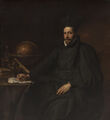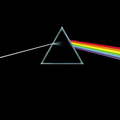Template:Selected anniversaries/March 1: Difference between revisions
No edit summary |
No edit summary |
||
| Line 28: | Line 28: | ||
||1910 – Archer John Porter Martin, English chemist and academic, Nobel Prize laureate (d. 2002) | ||1910 – Archer John Porter Martin, English chemist and academic, Nobel Prize laureate (d. 2002) | ||
||1911 – Jacobus Henricus van 't Hoff, Dutch-German chemist and academic, Nobel Prize laureate (b. 1852) | ||1911 – Jacobus Henricus van 't Hoff, Dutch-German chemist and academic, Nobel Prize laureate (b. 1852) Jacobus Henricus van 't Hoff, Jr. (Dutch pronunciation: [vɑn(ə)t ˈɦɔf]; 30 August 1852 – 1 March 1911) was a Dutch physical chemist. A highly influential theoretical chemist of his time, van 't Hoff was the first winner of the Nobel Prize in Chemistry. | ||
||1912 – Boris Chertok, Polish-Russian rocket engineer and academic (d. 2011) | ||1912 – Boris Chertok, Polish-Russian rocket engineer and academic (d. 2011) | ||
Revision as of 22:23, 5 November 2017
1597: Priest and mathematician Jean-Charles della Faille born. He will publish a method for calculating the center of gravity of the sector of a circle.
1611: Mathematician John Pell born. He will expand the scope of algebra in the theory of equations.
1871: Mystic and faith healer Grigori Rasputin invents new type of scrying engine, uses it to commit crimes against mathematical constants.
1893: Electrical engineer Nikola Tesla gives the first public demonstration of radio in St. Louis, Missouri.
1945: Field Report Number One (Peenemunde edition) spends ten weeks on New York Times bestseller list.
1973: The Dark Side of the Moon released. It will go on to become one of the most successful albums ever.
1974: Watergate scandal: Seven are indicted for their role in the Watergate break-in and charged with conspiracy to obstruct justice.






